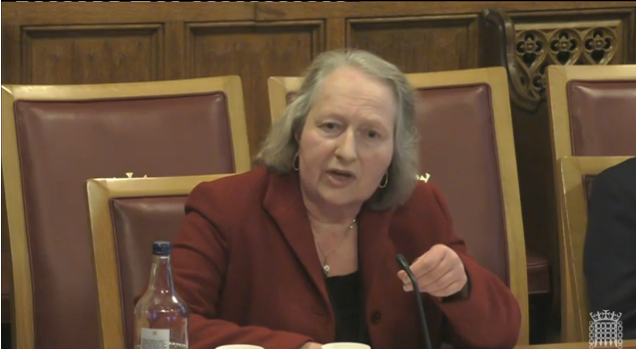Brexit & Beyond newsletter
30 January 2023
Welcome to the 30 January 2023 Brexit & Beyond newsletter
With no further statements from the UK and EU on the Protocol talks, this newsletter covers the latest commentary from media, business, and academia. The Lords Sub-Committee on the Protocol held another evidence session examining the supply of medicines to NI under the Protocol. The Retained EU Law Bill is proceeding through the House of Lords.
Update on the Protocol
The Financial Times reports that Prime Minister Rishi Sunak has “mobilised” two of his top officials (former UK Ambassador to the EU Sir Tim Barrow, and Cabinet Secretary Simon Case) to help resolve the dispute over the Protocol on Ireland/Northern Ireland, amid hopes of further progress. Politico reports on the dynamics between the eurosceptic European Research Group of Conservative MPs and the Prime Minister, pointing to “rumblings across Westminster that the protocol issue could give the group a new raison d’etre.” The article suggests that the PM “hopes shredding EU regulations at a frenetic pace [through the Retained EU Law Bill] will therefore give him the breathing room among his own MPs to find a compromise with Brussels over Northern Ireland.”
Rishi Sunak spoke to Taoiseach Leo Varadkar on the phone last Monday. They discussed the Protocol and the need to find solutions. The Taoiseach “repeated the need for a solution which avoids a hard border on the island of Ireland and protects the integrity of the single market.” Varadkar also raised his concerns to the PM about the possibility of checks at the land border on the island of Ireland to implement the UK’s new Electronic Travel Authorisation (ETA) system. Equality and Human Rights Commissions in Northern Ireland and the Republic of Ireland have recommended that all journeys into Northern Ireland originating from the Republic of Ireland should be exempt from the ETA requirements.

Prime Minister Rishi Sunak speaking on the phone to Taoiseach Leo Varadkar | Source: Simon Dawson / No 10 Downing Street
No deadline in the talks
The Secretary of State for Northern Ireland Chris-Heaton Harris was in the US last week. He met with the recently appointed US Special Envoy to Northern Ireland for Economic Affairs Joe Kennedy III. Speaking during his visit, Heaton-Harris said that there was no deadline in the EU-UK talks on that Protocol and this is was “proven to be one sure-fire way” for talks to break down. He added that discussing the detail of the talks also had the “potential to unravel them”.
A LucidTalk survey was published at the weekend, which included questions on the Protocol on Ireland/Northern Ireland and the functioning of the power-sharing institutions.
Labelling proposals
Marks & Spencer Chairman Archie Norman has written to the Foreign Secretary warning that proposals for separate labelling of goods sold in Northern Ireland under the Protocol could mean “overbearing and prohibitive costs” for retailers. The suggestion has come from both the EU and UK as a way of reducing checks on goods moving from GB to NI. M&S says it would cause difficulties for businesses which sell products outside the UK, (particularly in the Republic of Ireland), "requiring specific production runs and segregated stock for about 7-9% of our volume, incurring cost of packaging changes on every production run". Peter Foster from the Financial Times points out that UK Government’s 2021 Command Paper suggested labelling could be used as part of a dual regulatory regime to stop the Protocol undermining the UK.
On Wednesday, the Commons European Scrutiny Committee will hear evidence from business representatives on the Government’s proposals for the Protocol.
Border control posts
The Lords Secondary Legislation Scrutiny Committee’s latest report includes the Official Controls (Northern Ireland) Regulations 2023. As reported previously, this will allow UK Government Ministers to order the construction of permanent border control posts in Northern Ireland. This is a requirement under the Protocol, but the Government has pointed to its Northern Ireland Protocol Bill and the proposed red and green lanes which would require the enhancement of existing facilities. The Lords committee has received several submissions on the regulation, including from the DUP and logistics and haulage companies, which can be read on their website. Lord Dodds (DUP) has tabled a motion to annul the regulation.
‘Future-proofing’ the Protocol
QUB Professors Katy Hayward and David Phinnemore have penned an article on “future-proofing” an agreement on the Protocol on Ireland/Northern Ireland. They write that, “without a sense of legitimacy from communities in Northern Ireland, any UK-EU agreement on the Protocol is unlikely to bring the post-Brexit stability and certainty that is long overdue.” They call for “a clear process for input from key business, civic, and political stakeholders” and for the establishment of structures for NI stakeholders to “engage meaningfully in ongoing problem-solving in the implementation of agreed arrangements”, noting this is sought both from the business community, and NI political parties.
Supply of medicines to NI under the Protocol
The Lords Sub-Committee on the Protocol on Ireland/Northern Ireland took further evidence on the supply of medicines. Witnesses explained their concerns around current issues (such as customs frictions) and future issues (linked to the grace periods ending next year, batch testing, and divergence). Alan Stout, GP and Deputy Chair of BMA NI Council said the mitigations “have clearly worked” but echoed concerns about “yet another cliff edge”. Mark Dayan from Nuffield Trust, a health think tank, highlighted that if the current grace periods run out without further mitigations, they face the same problem of "quite a credible threat of hundreds, maybe four figures of discontinued medicines". Kate Ling from the NHS Confederation emphasised to the committee that a lot of work has gone on behind the scenes to ensure that patients and providers don’t see the difference and continue to receive medicines. A major concern is that the outstanding issues could be “side-lined”, or a solution found which is a “fudge” or “half-baked”.

Kate Ling, European Policy Manager at the NHS Confederation, speaking to the Lords committee | Source: UK Parliament
On the Falsified Medicines Directive (EU rules to stop the sale of fraudulent medicines), Dayan suggested that while it might be difficult to stop this requirement applying in full to NI, if the EU could accept that moving medicines through the UK isn’t a risk to the system, that would remove part of the problem. He explained that the code on a medicine is logged on the system when it reaches a patient or when it is exported from the EU. When a medicine leaves to go to GB and then NI, it must be registered as being exported and then imported. Stout said that 0.005% of drugs were counterfeit in UK (or one prescription per day) so it’s a “disproportionate way” to address the issue. He questioned what would happen in practice if the current mitigations are not extended, or if NI did not meet its obligations in the Falsified Medicines Directive (FMD).
Ling said she would like to see mutual recognition arrangements so the EU and UK regulators would recognise each other’s decisions; a permanent derogation from the FMD; and UK-wide authorisation from the regulator, the MHRA. Stout said from a GP/patient perspective, he was surprised about issues mentioned the previous week about NIMAR: these medicines are commonly used, he said, which shows that the mitigations are working. Dayan said mutual recognition of batch testing and easements of the NIMAR system would be welcome.
Ling noted that under the terms of the EU-UK Trade and Cooperation Agreement, a medicinal products working group should be established but this has never actually met. She presumes the EU side is not engaging as they are linking this to the wider Protocol dispute, similar to the UK’s participation in Horizon. Witnesses agreed that the current derogations and easements should be maintained at a minimum. Ling concluded that it’s “not beyond human wit to devise a sensible solution” and said the problems are “eminently practical” and require trust, goodwill, and getting down to sensible discussions in order to resolve them.
Retained EU Law Bill
On 23 January the House of Lords debated trade unions and workers’ rights in relation to the Retained EU Law (REUL) Bill. Lord Callanan, Minister in the Department for Business, Energy and Industrial Strategy, said the REUL Bill is “not about workers’ rights; it is about retained EU legislation and the consequences that will flow from that.” The Earl of Kinnoull noted that the explanatory notes for the Bill now state that there are over 3,200 items of relevant legislation – previously the Government put this figure at 2,400 (see the latest explanatory notes). This follows reports that the Government had found an extra 1,400 pieces of legislation in the National Archives. The Minister said the REUL dashboard will be updated soon. He argued during the debate that UK employment rights do not depend on EU law, citing better regulations for UK workers than EU workers. Various groups (for example, employment lawyers and human rights advocates) have previously raised concerns about the Bill’s impact on workers’ rights.
Former Permanent Secretary of the Government Legal Department Sir Jonathan Jones writes, “It’s difficult to think of anything good to say” about this Bill, calling the timeline “absurd” and arguing that it represents a “massive power grab” by Ministers as Parliament will not have the chance to scrutinise decisions. The BBC has produced an explainer about the Government’s REUL policy. The Senedd has published an article on the Welsh Government’s approach to Retained EU Law. It is looking at “the least resource-intensive option” to save REUL.
The second reading of the Bill in the Lords will be held on Monday, 6 February.
Other news
- The UK in a Changing Europe think tank has published a report on the future of the UK-EU relationship, 6.5 years after the Brexit referendum.
- The Independent reports that British creative industries are losing out on more than £160 million in EU funding as the UK Government has exited the EU’s Creative Europe project.
- The European Economic and Social Committee considered a report on implementation of the EU-UK Withdrawal Agreement, including the Protocol. The Committee calls for deeper civil society cooperation, a mutually agreed resolution on the EU-UK Withdrawal Agreement implementation, and a future mobility scheme for young people.
- The European Parliament Constitutional Affairs Committee has postponed a vote on the implementation of the EU-UK Brexit agreement to allow more time for “consolidating compromises among political groups.” The Committee has been considering a draft report on the implementation of the Withdrawal Agreement.




